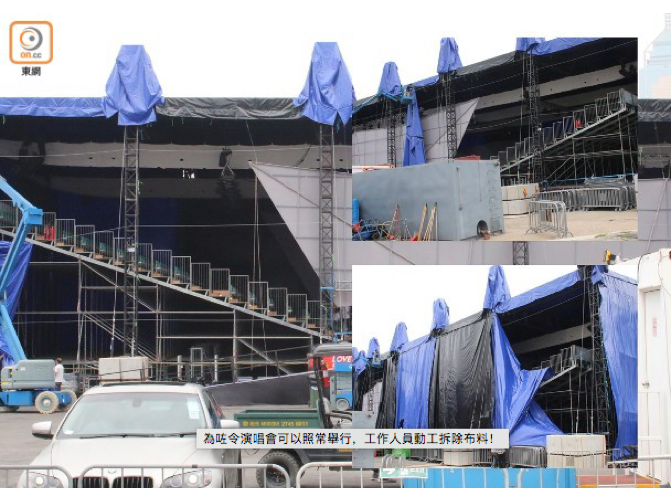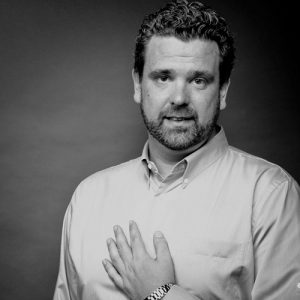
Leon Lai is one of the “Four Heavenly Kings” of Hong Kong; superstar HK actor and famous Cantopop singer from the 90’s. His songs are well known across Asia-Pacific and Mainland China and because his live concerts are limited, there’s huge anticipation and crowd turnout every time he performs.
In April 2016, the singer had planned 8 concerts at the Central Harbourfront venue in Hong Kong as part of his Leon 30th Anniversary Random Love Songs 4D Live in 2016 series. The event took place in a custom-built tent which could accommodate 4500 fans paying around 980 HKD (125 USD) and 2980 HKD (380 USD) per ticket to see their favourite Hong Kong star perform.
On the first night of the concert, the Food and Environmental Hygiene Department of Hong Kong spread a press release stating no temporary permit could be issued, resulting in the concert being cancelled for that night.
The reason for cancelling was because the custom-built marquee, particularly the PVC covering the tent, failed to meet local fire regulation standards. In Hong Kong, PVC and fabrics for events must meet the British fire safety standards, which this material failed to do. The fire department services were concerned the stage lighting could set fire to the non-flame-retardant PVC and regarded it a huge safety concern for the audience attending the show.
Because the concert was cancelled just a few hours before opening, thousands of fans were waiting disappointed in front of closed gates. Media coverage of the incident was unseen for this high-profile event.
This case could have been a huge PR disaster for Leon Lai’s organization, but the way the artist and public face of the company dealt with the situation, made him even more popular with the general public after the crisis settled.
Leon Lai acted fast by posting a clarifying Facebook video almost immediately after the news was made public. The speed this was done with was crucial.
As fans and media were waiting for updates, he took control of the narrative and carefully avoided the story taking on a life of its own. Leon took full responsibility for the cancellation, saying it was not the fault of the Food and Environmental Hygiene Department. He did not blame any vendors or staff for the incident, nor did he try to find excuses. Leon Lai took it all on himself and apologized deeply and repeatedly to his fans and all people affected.
As CEO of the company, he stepped in the spotlight and diverted all blame from anybody else, even though he himself was probably not involved in the choice of PVC being used for the tent.
In his Facebook video, Leon was very transparent. He spoke in detail about what had happened and did not try to hide any facts. A very important and sincere gesture in a time where information was not yet available, and everybody was eager to know what exactly was the problem.
Overall, a lot of people sympathized with Leon and the situation he was in thanks to the speed and transparency of his honest reply, the fact that he took responsibility for what happened and apologized profoundly. The next days the decision was made to remove the PVC from the marquee, so the necessary permissions could be granted, effectively changing the 7 remaining concerts to outdoor events.

After this crisis, Leon Lai’s popularity in HK only rose more. He was perceived as a true class act in the way he dealt with these unfortunate events and the way he managed the crisis is something many public figures could learn from.
For some organizers and vendors, the use of flame-retardant fabrics, PVC, prints and screens is not automatic item on the preparation list when planning large-scale events in Asia or the Middle East. It’s considered secondary because regulation is not in place, it might be more expensive than non-fire rated materials, the venue or end user might not have specified the requirement explicitly or it’s overlooked.
Looking at the potential risk of cancellations or even worse, accidents, this is something organizers should obviously pay more attention to. Always make sure the material you use is certified according to the highest international and local standards.
Ask your supplier for the FR certificate and make sure you always have it with you during the event. Some fire departments in Hong Kong and China will even conduct fabric burning tests on site to check if the material is fire rated or not. Rules and regulations in the Middle East and Asia change constantly, so always make sure you are up to date with the relevant laws and venue requirements.
SOURCES


Jan Blomme is an all-round event and theatre industry professional with a technical commercial background. His specialities are business development, manufacturing and project management. Every live event professional aims to tell a story and engage a crowd through creating memorable, inspiring and unique events. Events that also need to be delivered on time and within budget. Jan bridges the gap between creative inception and technical realization. Approaching projects with great optimism, an open mind and a can-do attitude, backed by extensive knowledge of technical fabrics and fabric motion systems and supported by a solid network of industry professionals, based all over the world. Currently, Jan is Managing Director at ShowTex Hong Kong and China where he and his team work on fix shows for international and local theme parks, theatre refurbishments and large-scale exhibition projects. Some recent work includes installations in Disneyland Shanghai, the Han and Dai Show for Productions du Dragone, Harbin Ice Romance show for Sokol Show/Wanda Group and large motor show events.
Read Full Profile© 2021 TheatreArtLife. All rights reserved.

Thank you so much for reading, but you have now reached your free article limit for this month.
Our contributors are currently writing more articles for you to enjoy.
To keep reading, all you have to do is become a subscriber and then you can read unlimited articles anytime.
Your investment will help us continue to ignite connections across the globe in live entertainment and build this community for industry professionals.